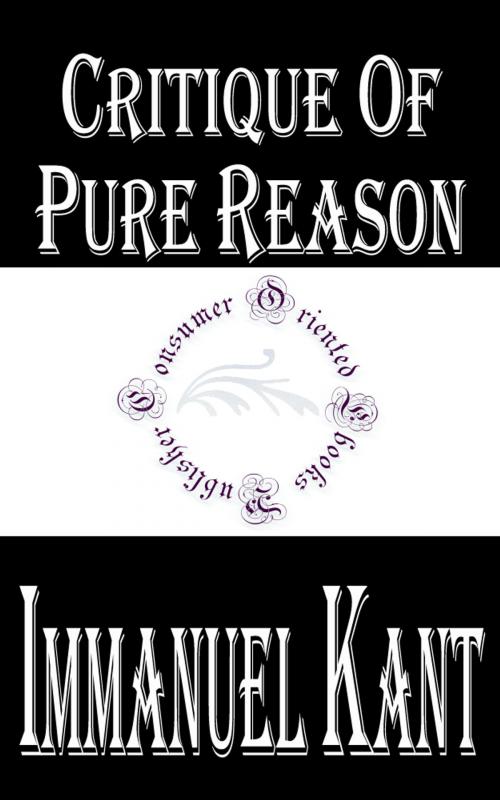Critique of Pure Reason
Nonfiction, Religion & Spirituality, Philosophy, History, Criticism, & Surveys| Author: | Immanuel Kant | ISBN: | 1230000309026 |
| Publisher: | Consumer Oriented Ebooks Publisher | Publication: | March 3, 2015 |
| Imprint: | Language: | English |
| Author: | Immanuel Kant |
| ISBN: | 1230000309026 |
| Publisher: | Consumer Oriented Ebooks Publisher |
| Publication: | March 3, 2015 |
| Imprint: | |
| Language: | English |
Human reason, in one sphere of its cognition, is called upon to consider
questions, which it cannot decline, as they are presented by its own
nature, but which it cannot answer, as they transcend every faculty of
the mind.
It falls into this difficulty without any fault of its own. It begins
with principles, which cannot be dispensed with in the field of
experience, and the truth and sufficiency of which are, at the same
time, insured by experience. With these principles it rises, in
obedience to the laws of its own nature, to ever higher and more remote
conditions. But it quickly discovers that, in this way, its labours must
remain ever incomplete, because new questions never cease to present
themselves; and thus it finds itself compelled to have recourse to
principles which transcend the region of experience, while they are
regarded by common sense without distrust. It thus falls into confusion
and contradictions, from which it conjectures the presence of latent
errors, which, however, it is unable to discover, because the principles
it employs, transcending the limits of experience, cannot be tested
by that criterion. The arena of these endless contests is called
Metaphysic.
Human reason, in one sphere of its cognition, is called upon to consider
questions, which it cannot decline, as they are presented by its own
nature, but which it cannot answer, as they transcend every faculty of
the mind.
It falls into this difficulty without any fault of its own. It begins
with principles, which cannot be dispensed with in the field of
experience, and the truth and sufficiency of which are, at the same
time, insured by experience. With these principles it rises, in
obedience to the laws of its own nature, to ever higher and more remote
conditions. But it quickly discovers that, in this way, its labours must
remain ever incomplete, because new questions never cease to present
themselves; and thus it finds itself compelled to have recourse to
principles which transcend the region of experience, while they are
regarded by common sense without distrust. It thus falls into confusion
and contradictions, from which it conjectures the presence of latent
errors, which, however, it is unable to discover, because the principles
it employs, transcending the limits of experience, cannot be tested
by that criterion. The arena of these endless contests is called
Metaphysic.















